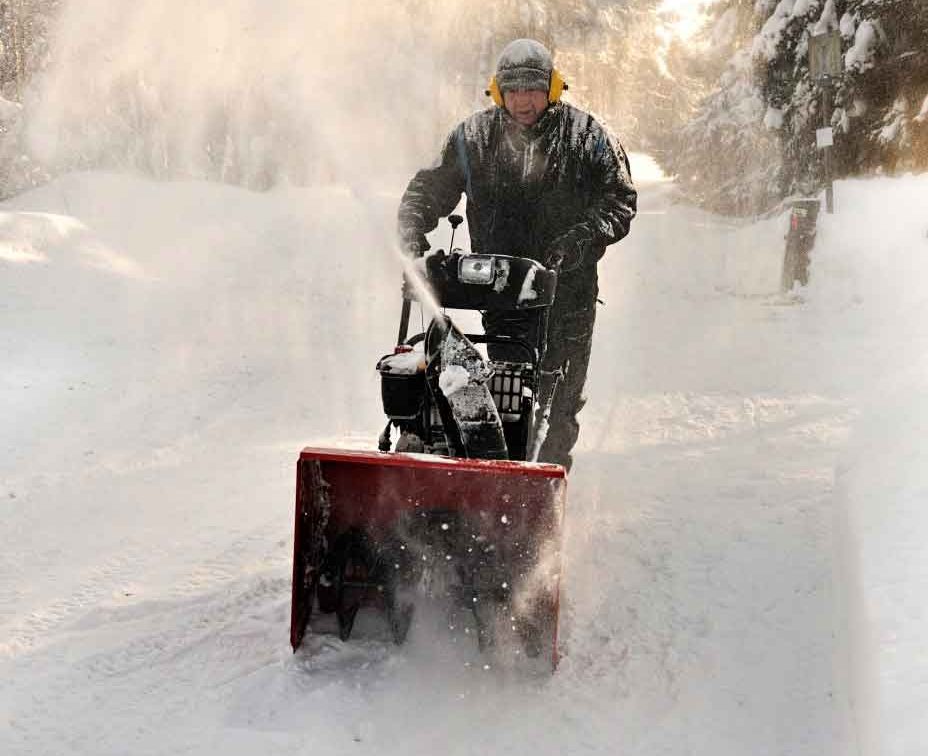Preparing for Severe Winter Weather

You need more than a shovel and a coat to be ready for the upcoming blast of ice and snow. You need a plan. Learn more about severe winter weather safety tips.
The sight of snowflakes gently falling from the sky, and coating the ground makes for a picturesque scene, but winter weather can be treacherous if you’re driving or walking in it. Each year, more than more than 1,000 people die in car accidents on slick roads. Another 1,300 succumb to hypothermia from exposure to cold.
Extreme winter weather can be dangerous in not only hazardous conditions but also a home that is poorly insulated or unheated.
Putting a winter weather plan in place long before the first snowflake falls can keep you and your family warm and safe this year. Use these expert severe winter safety tips to help you get ready for the season.
YOU MIGHT ALSO LIKE: How to Prevent Cold Weather Injuries
Stockpile winter supplies
The day before a big winter storm, hardware stores and supermarkets are packed with shoppers making last-minute efforts to stock up. To avoid the rush, have your emergency kits assembled well ahead of storms. Ideally, you need three sets of supplies: one for your home, another for your garage, and a third for your car.
In your home
- Warm clothes, extra blankets, coats, sleeping bags
- Flashlights with batteries
- Drinking water and nonperishable food (such as crackers, canned goods, and dried fruit)
- Prescription medicines
- NOAA weather radio
- Fire extinguisher
- Carbon monoxide and smoke detectors with working batteries
- Extra batteries
- Charged cell phone
- Portable space heater
In your garage
- Rock salt, cat litter, or sand to melt ice or improve traction on sidewalks and your driveway
- Snow shovels or blowers
- Heating fuel or wood
- Extra propane for your grill
- A generator
In your car
- Windshield scraper and small broom
- Shovel
- Portable cell phone charger
- First aid kit
- Blankets
- Extra hats, coats, and gloves
- Battery-powered radio
- Extra batteries
- Flashlight
- Sand or cat litter (for traction)
- Water and snacks
- Booster cables or portable battery charger
- Emergency flares
Winterize your home and car
Home is your safe haven during a winter storm. To protect you and your family, keep your house warm and well maintained. Check that all outside walls and windows are sealed from the cold with weather stripping and insulation. Fix any cracks or holes through which winter air might enter. Have your heaters, chimneys, and pipes professionally cleaned and maintained. Insulate pipes to prevent them from freezing. In your front- and backyard, trim back any trees that could fall on your house during a storm.
To avoid getting stuck on the road in subzero temperatures, give your car a check-up, or have a mechanic do it for you. Make sure all levels — oil, antifreeze, brake fluid, and windshield wiper fluid — are topped off. Keep your gas tank full. Check that your heater, windshield wipers, brakes, emergency flashers, batteries, and ignition system all work properly. If your tires are worn, replace them with a new set of all-weather or snow tires. In mountainous or heavy-snow regions, add chains to your tires for extra traction.
Have a family communication plan
Just as you’d create a family plan for a fire or other emergency, have a plan in place for winter weather. Discuss with each family member where you’ll go to find shelter and how you’ll get in touch with each other if a storm separates you. Set a designated place where you’ll all reconnect once the storm subsides and the roads are safe to navigate.
Check the forecast
Don’t let winter storms catch you off guard. Check your local weather on radio, TV, the internet, or your cell phone app to stay alert about changing conditions. When a winter storm threatens, stock up on food and other supplies several days in advance to avoid the mad supermarket rush for bread, milk, and water. Stock up months in advance on can and dry goods and other foods your family often eats.
Updated:
October 25, 2023
Reviewed By:
Janet O’Dell, RN